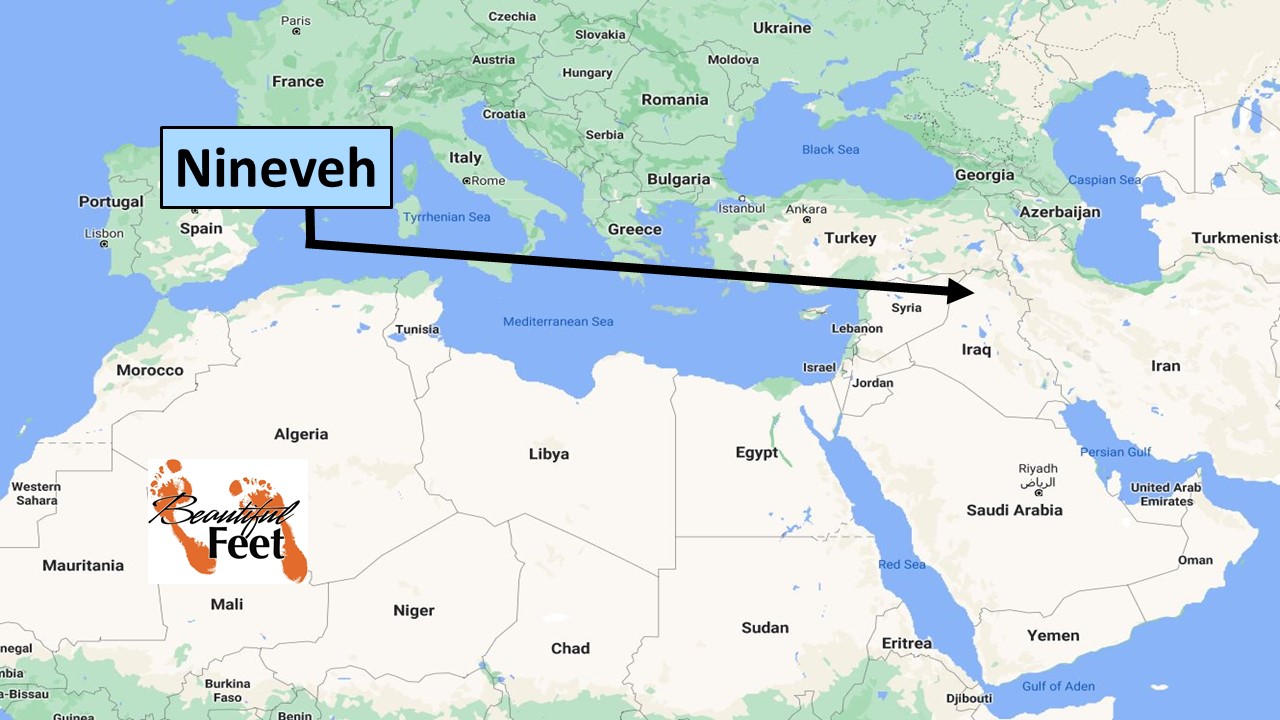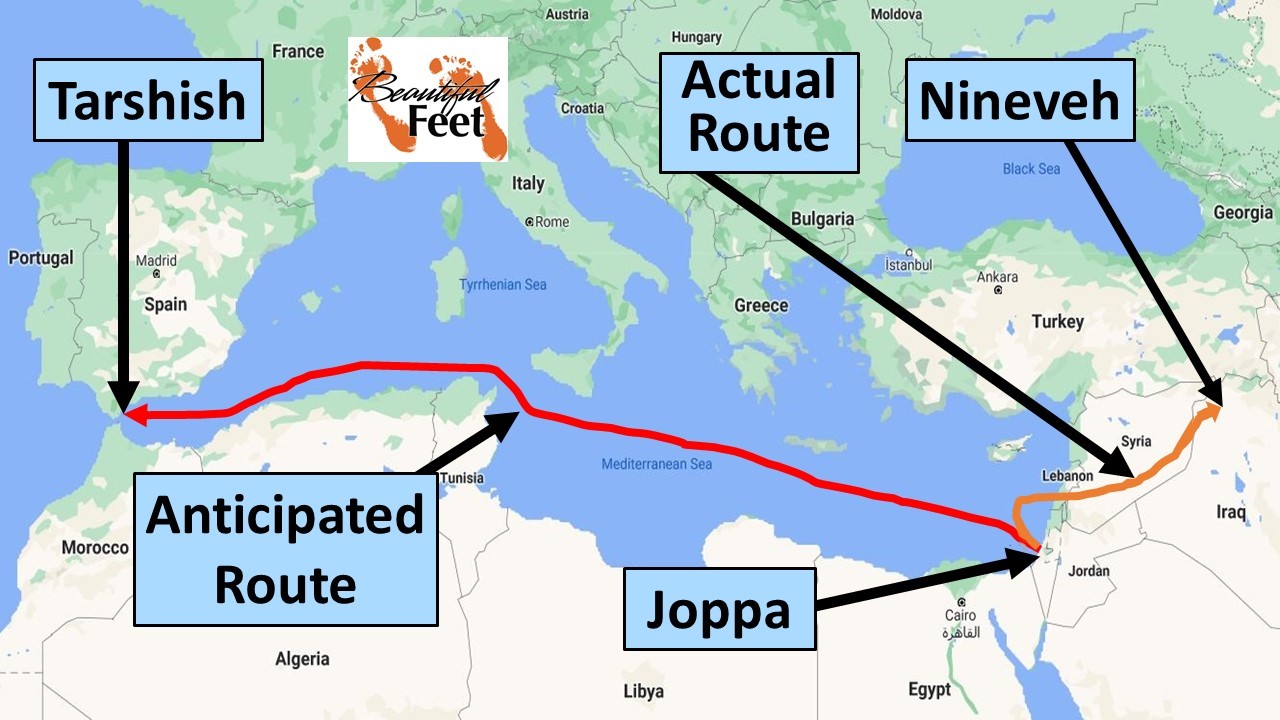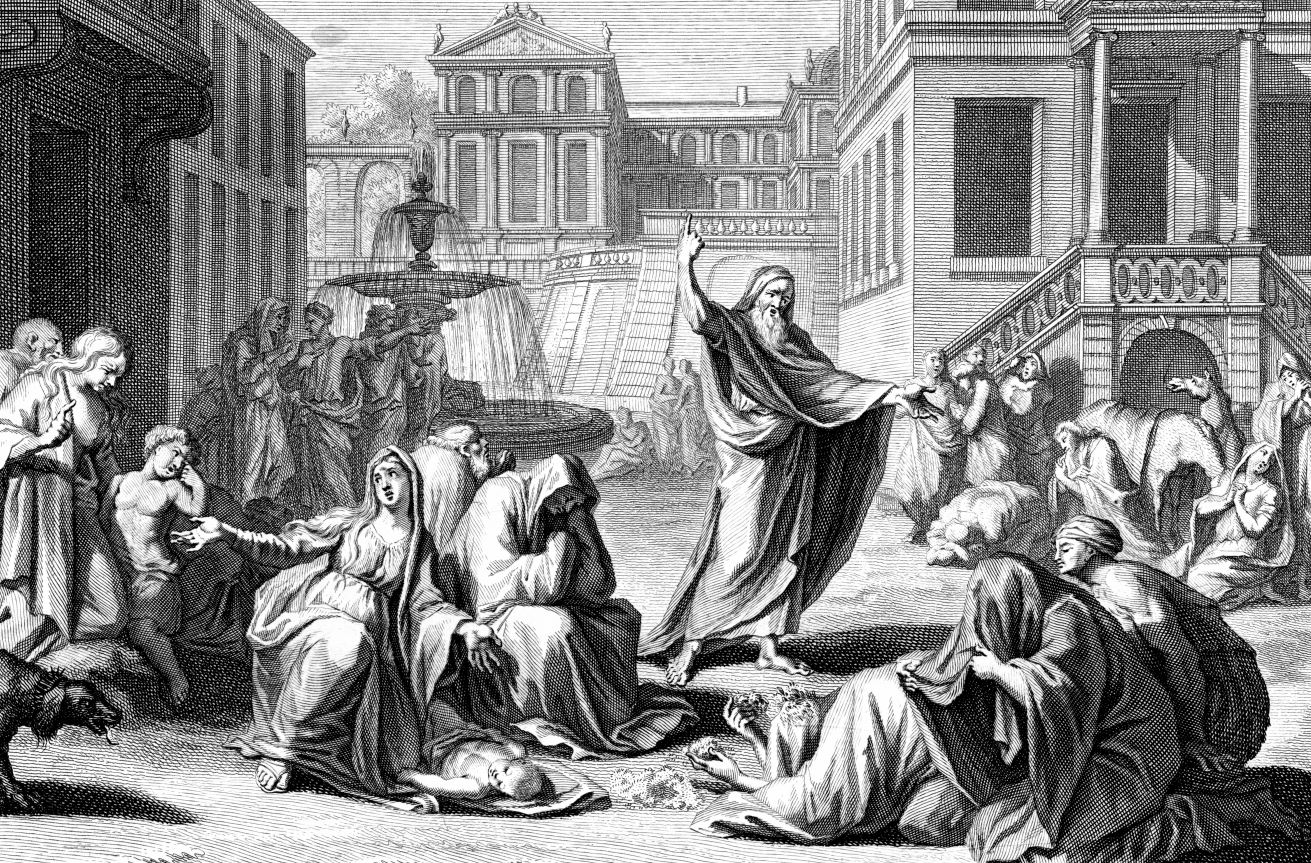767 B.C. Revival at Nineveh Under Jonah


Nineveh was located in the area now known as Mosel, Iraq
Introduction
This is not a commentary on the four-chapter book of Jonah, giving all the details about the city of Nineveh, why Jonah disobeyed God, and the displeasure Jonah had when God demonstrated mercy instead of judgment. Instead we will focus primarily on the revival that occurred in that city and use bullet points to highlight different aspects of this story.
Beginning
The revival that resulted through the prophetic ministry of Jonah is one of the most startling revivals that has ever occurred. Never in history has there been such a large number of people demonstrating repentance at the same time, resulting in God granting mercy instead of the prophesied judgment of destruction.
The Calling of Jonah and His Disobedience
► Jonah was called by God to proclaim Nineveh’s coming destruction (Jonah 1:1-2; 3:4).
► Jonah disobeyed and ran from God (Jonah 1:3).
God’s Discipline of Jonah and His Repentance
► God disciplined Jonah with a terrible storm and swallowed by a great fish, bringing him to a place of submission (Jonah 1:4-17).
► Jonah repented in prayer to God (Jonah 2:1-10).

Jonah thrown out of the ship and swallowed by a large fish

Jonah’s intended route to Tarshish, and his actual route to Nineveh
Before a wide-spread revival occurs there is always the long-term preparation in the life of a man or woman whom God will use to initiate the revival. The revival at Nineveh was no different.
Before Jonah could be used as God’s mouthpiece, his rebellious will had to be broken. God used a storm at sea, as well as Jonah spending three days and three nights in a large fish, before Jonah would obey (Jonah 1:4-17; 2:1-9).
It was while Jonah was in the fish that he had a sincere surrendering to God, but as we see in Jonah 4:1-4, Jonah was still a work in progress.
A study in the lives of many revivalists will show that they didn’t just step onto the scene, preach a single sermon, and a revival developed. There is often a cyclical process that God uses, until the person’s will, like Jesus’ in the garden, is fully surrendered to God (Luke 22:42).
In the story with Jonah, following his repentance, we see that God brought him back to where he began, possibly close to the town of Joppa, where the fish spit Jonah out onto the beach (Jonah 2:10), and it was then that he began his journey to Nineveh.

Jonah preaching in Nineveh
Personal Revival before Corporate Revival
► Following Jonah’s revived submission to the will of God, he proclaimed to the Ninevites that their destruction was imminent (Jonah 3:1-4).
Forty days from now Nineveh will be destroyed! (Jonah 3:4).
Reception of the Message
The Ninevites received Jonah’s message with sincerity and in totality–something that has never been seen before or since (Jonah 3:5-9).
Genuine Repentance Has Evidence
The repentance demonstrated at Nineveh was an exceptionally rare event. Israel’s prophets were rarely listened to by their own people, so to have a foreign nation so completely embrace Jonah’s message leaves one wondering how this one man gained their attention (Jonah 3:10).
The Ninevites not only believed Jonah’s message, but they proved their fear of God and demonstrated their faith in Jonah’s message through their outward actions:
► A total fast of food and beverages was declared (Jonah 3:5).
► Animals were also forced into this fast (Jonah 3:7).
► People clothed themselves in burlap / sackcloth (Jonah 3:5).
► Animals were also clothed in burlap / sackcloth (Jonah 3:8).
► They sat in heaps of ashes (Jonah 3:6).
► Everyone was commanded to pray (Jonah 3:8).
► The king and nobles demanded that everyone stop their evil ways and violence (Jonah 3:8).
The Ninevites were living out the command that John the Baptist gave when he was preaching:
Prove by the way you live that you have repented of your sins and turned to God (Matthew 3:8).
Jonah and Miracles
The Bible doesn’t tell us of any miracle that was performed by Jonah, but there was something that happened that caused the entire city–of hundreds of thousands–to believe that what he said about their imminent destruction was true.
Miracles Do Not Always Lead to Repentance
Often there are miracles that occur before and during revivals. The New Testament shows that miracles were used to propagate the Gospel:
► Jesus’ miracles drew crowds and opened hearts to believe. He said that the miracles proved that His message was true (John 5:36; Acts 2:22).
Many people have witnessed miracles, yet their hearts remained stubbornly defiant. The religious leaders witnessed Jesus performing miracles, yet they still chose not to believe He was the Messiah.
► The apostles prayed for miracles to happen, knowing they were powerful demonstrations that built people’s faith to believe (Acts 4:30; 14:3; Mark 16:20; Hebrews 2:4).
The same religious leaders that opposed Jesus and denied Him, even though they witnessed His miracles, also rejected the apostle’s message and miracles:
What should we do with these men?” they asked each other. “We can’t deny that they have performed a miraculous sign, and everybody in Jerusalem knows about it (Acts 4:16; see also John 14:11).
► The apostle Paul made it very clear that miracles, signs, and wonders were what he used to build faith in the message that he proclaimed (Romans 15:19).
Inward Miracles Are Also Vital
One of the greatest miracles that can be experienced, and one that may have occurred in Nineveh, is that of a person becoming deeply aware of their guilt before God (conviction of sin). When a person’s heart has been hard, rebellious, and unrepentant–and then, upon the preaching of the Word of God, it is awakened to its sinfulness–that is a miracle!
God Delights in Showing Mercy
Jonah knew God’s nature. He knew He delighted in showing mercy and not judgment (Jonah 4:2; Micah 7:18). That is something we need to keep in mind. And, knowing God wants to show mercy, His greatest desire is for us to live in a perpetual state of revival—it is possible!
We Can Have Revival Now
Some erroneously assume that we can do nothing to initiate a revival, and that everything must wait on the sovereignty of God. God’s will for His Church, and for individual followers, is that they always live in a revived state, and never slip into periods of stagnancy, dormancy, and become lethargic and complacent.
To say that revival is something we must wait for is a serious error. If an individual or congregation says they need a revival, personally or corporately, it is the confession of their state of disobedience. It is the confession that sin is present, and the only thing that can turn that around is a decision. That decision is defined as repentance. Repentance is initiated in response to the convicting and drawing power of God (John 6:44). Once a person (or congregation) decides they want to turn from sin, and they ask God for a revival of their soul(s), that revival will come automatically and without delay.
Once a person (or congregation) is revived, and is living in a revived state, that revival need never end. The only thing that can stop it is sin.
“If you are right with God, revival will never stop.” – Simeoni Nsibambi, during the 50 year long East African Revival.

Jonah and the gourd (Jonah 4:1-11)
Return to List of Revival Stories
Chet & Phyllis Swearingen:
Office: (260) 920-8248
romans1015@outlook.com
Beautiful Feet
P.O. Box 915
Auburn, IN 46706

